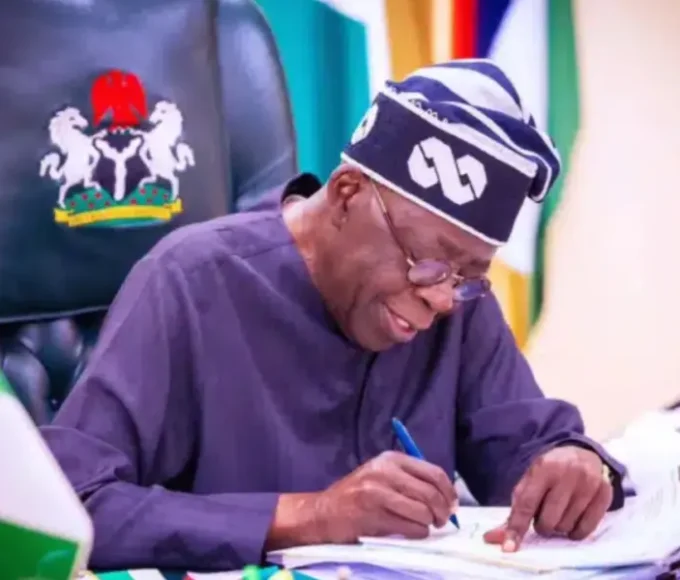The Federal Government has resolved to stop the salaries of protesting universities lecturers over the ongoing strike of its Academic body, the Academic Staff Union of Universities (ASUU).
Some members of the union confirmed the “no work, no pay” policy on the striking lecturers.
Confirming the development, the zonal coordinator of ASUU, Abuja zone, Dr Salahu Mohammed Lawal, said their members have been denied salaries.
“Our members were denied their salary. We are not surprised being a game plan to weaken and break our ranks”, he said.
On his part, the Chairman of ASUU, University of Calabar (UniCal) branch, Dr John Edor, said “It is true that the government imposed the no work no pay policy on the striking workers”, even though he did not give the details of the payment crisis.
Earlier, the president of NAAT, Ibeji Nwokoma, also confirmed that members of his union were not paid their full March salaries.
Nwokoma also accused the federal governmnet of ignoring all the notices and letters sent with the hope of addressing some of the issues faced by the union.
“Instead of the Nigerian government inviting the striking workers to dialogue on the matter, it went ahead to implement its ‘no work, no pay’ policy”, he said.
ASUU, had on February 14, embarked on a 4-week total and comprehensive strike to press home their unresolved demands on the federal government.
The union on March 14, extended the industrial action by another 2 months, hinging it on the lack of seriousness on the part of the federal government to address the issues.
Some of the lecturers’ demands include funding for the revitalisation of public universities, payment of earned academic allowances, adoption of the University Transparency Accountability Solution (UTAS) and payment of promotion arrears.
Others are the renegotiation of the 2009 ASUU-FGN Agreement, and the resolution of inconsistencies in the Integrated Personnel and Payroll Information System (IPPIS).
Meanwhile, the Federal Government has lamented the current state of negotiation between it and ASUU.
The Minister of Labour and Employment, Sen. Chris Ngige, claimed the union is making things difficult for both parties.
Ngige disclosed this in a statement issued by Patience Onuobia, Acting Head of Press and Public Relation in the ministry on Tuesday in Abuja.
The minister dismissed insinuations that he was responsible for the ongoing strike by the union, insisting that he has done what many could not do in efforts to forestall the strike.
“For example, ASUU insists that the National Information and Technology Development Agency (NITDA), should take the payment platform, University Transparency Accountability Solution (UTAS) that it developed.
“That they should deploy it for payment in the university whether it is good or bad, whether it failed integrity and vulnerability test or not.
“ASUU members know that fraud committed on payment platforms can run into billions. If a hacker adds zeros to hundreds, it becomes billions”, he said.
The Minister added that NITDA brought out the report of its test on the UTAS, stating that it passed the user acceptability, but failed vulnerability and integrity tests which were the two critical tests that prevented fraud, adding that NITDA stated it cannot take the platform at 99.9 percent of vulnerability and integrity on a payment system.
“As a conciliator, I spoke to ASUU and NITDA to continue the test and see whether they could make up the lapses and arrive at 100 percent because that is what NITDA insists on.
“These are the issues. So if you hear someone saying Ngige is responsible, it is wrong. I’m not the one that implements. I’m the conciliator”, said Ngige.
He added that during negotiations, he also conciliates, so that there will be no more warfare and “even in conciliation, once I apprehend, the parties go back to status quo ante- which means, you call off the strike.
“ASUU should have by now called off the strike because that’s what the law says.
“I have earlier, while we convened the National Labour Advisory Council in Lagos last month, urged the NLC to which ASUU is affiliated, to intervene in this respect”, Ngige added
However, he also added that the Labour Ministry successfully conciliated 1,683 industrial disputes since its assumption of office in 2015.
“However, when conciliation fails, the Minister is under obligation by section 9 and 14 of Trade Disputes Act, Cap T8, Laws of the Federation of Nigeria to transmit the results of the negotiation to the Industrial Arbitration Panel (IAP) or to National Industrial Court of Nigeria (NICN).
“In the ongoing ASUU imbroglio, I’m the conciliator. I bring them to negotiate with their employers.
“That is the Ministry of Education and the National University Commission as well as IPPIS, the office of the Accountant General of the Federation, all under the Ministry of Finance.
“At the end of every negotiation, we put down what everybody has agreed on in writing and add timelines for implementation”, he said.














Leave a comment